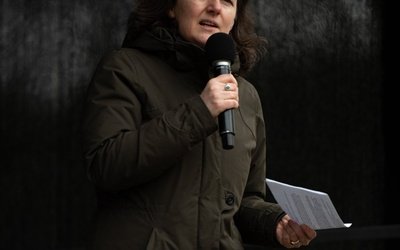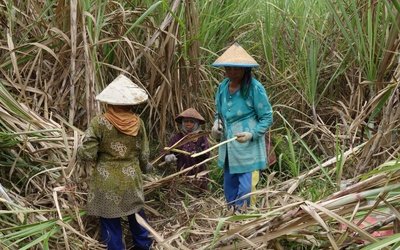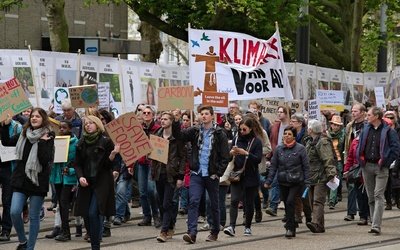The Dutch government, through its export credit agency Atradius DSB (ADSB), provides export support to companies that undertake activities abroad. The state wants projects it insures to have no negative consequences for people and the environment and therefore sets requirements for corporate social responsibility (CSR). A consultation on CSR policy ran until the end of April, to which a coalition of thirteen social organisations from the Netherlands and abroad, including Both ENDS and Milieudefensie (Friends of the Earth the Netherlands), responded.

A number of our colleagues at Both ENDS made a lot of noise at various locations around the country today, as part of the national Klimaatalarm (Climate Alarm) campaign. Annelieke Douma gave a short speech in Haarlem on the major role played by the Netherlands in climate change and environmental degradation beyond our borders. She made a number of suggestions that would immediately make Dutch foreign policy a lot more climate-friendly. Below is the text of her speech.
Both ENDS, also on behalf of FERN, NCIV and Milieudefensie, sent a letter to Vivianne Heijnen, the State Secretary for Infrastructure and Water Management, about the MTCS certificate. In practice, this Malaysian timber certificate appears to tolerate the violation of indigenous land rights and intimidation of indigenous organisations. The Netherlands should therefore suspend the approval of MTCS in its purchasing policy, among other things.

Today, a letter, undersigned by almost 60 organisations from countries that face the consequences of fossil fuel projects or stand in solidarity, has been sent to the Dutch Members of Parliament. This Thursday, a debate about the export credit facility and the policies around it, will take place in the Dutch Parliament. The coalition calls upon Dutch politicians and policy makers to stand up against any form of export support for fossil fuel projects that are to be executed by Dutch companies abroad, expecially in the global South.
In October this year, the Dutch government published a policy to implement the COP26 statement in which it promised to stop public finance for fossil fuel projects abroad by the end of 2022 . In spite of this pledge, the Netherlands is considering granting an export credit insurance to a floating production storage and offloading (FPSO) vessel that will be used to produce oil and fossil gas in Brazil for a period of 30 years.

In 2015, the United Nations instigated the Sustainable Development Goals (SDGs). These seventeen interrelated goals are intended to result, by 2030, in a better, fairer and more sustainable world in which no one is left behind. As a member of the UN, the Netherlands is committed to promote the SDGs and every year Statistics Netherlands (CBS) and the central government publish reports on the progress made. The initiators of 'SDG Spotlight Nederland' however believe that there is a need for an annual report on the Netherlands' performance on specific SDGs from a different perspective. Fiona Dragstra and Stefan Schuller of Both ENDS contributed to the report on 2020 and tell us here why they think it is so important.

On Friday 27 September, Both ENDS joins the Dutch Climate Strike and the march in The Hague.
This way we let our government know that there is no more time to waste and that it must take significant action in all policy areas to stop climate change.
More information on the Dutch Climate Strike can be found on https://klimaatstaking.nl/english/